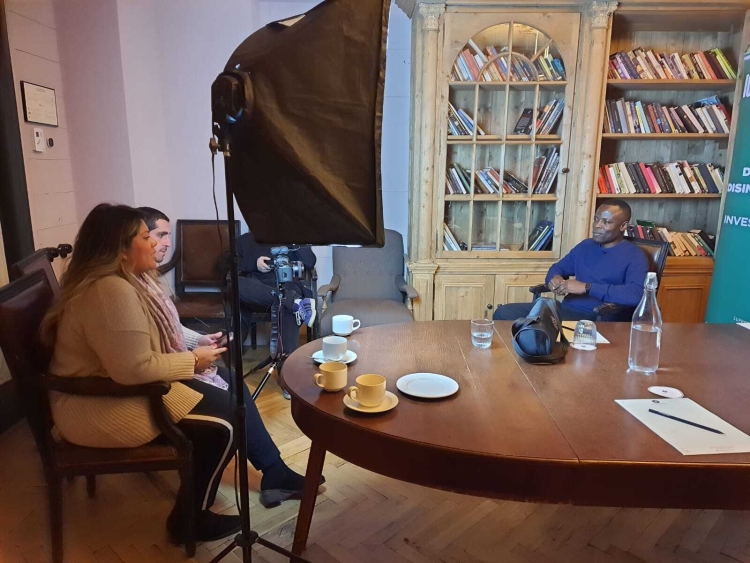Investigative journalist James Okong’o interviewed six “digital mercenaries” to uncover how they were paid to organize disinformation campaigns and influence recent elections in Kenya and Nigeria. The report, published by Agence France-Presse Fact Check, revealed new details about how these influential bloggers and social media personalities worked to discredit political opponents, undermine political institutions and fuel tensions.
“For money, we published whatever our employer wanted, sometimes it was false, misleading or even inciting,” one Nigerian blogger told Okong'o.
Okong’o’s investigation delves into the payments the influencers received and the methods they used to execute disinformation campaigns during the elections in Kenya in 2022 and Nigeria in 2023. In Nigeria, some influencers made up to 500,000 naira ($1,000) a month, as opposed to the average monthly income of about 161 USD. In at least one case, another Nigerian blogger claimed he received cars from senior politicians of the All Progressives Congress (APC). A Kenyan blogger told Okong’o his team circulated fake newspaper covers, while others said they created fake social media accounts to spread lies.
“In Kenya and Nigeria, politicians and political players are powerful and they control even the state security apparatus,” Okong'o said. “My investigation touched powerful and feared politicians from both countries.”
During the investigation, Okongo’s phone was allegedly tapped, which led him to get a new phone line registered under a different identity for the remainder of the reporting.
Okong'o’s investigation about the nexus between digital mercenaries and politicians in sub-Saharan Africa is one of six investigations published so far, supported by ICFJ’s Disarming Disinformation program, a three-year global initiative run by ICFJ and supported by Scripps Howard Fund. Eight journalists from seven countries were given grants to carry out their investigations into electoral disinformation, with support from ICFJ-backed mentors who assisted them through their reporting and writing process.

“This investigation shows why paying attention to money matters in the disinformation field,” said ICFJ Knight Fellow Laura Zommer, who leads the investigative track of the Disarming Disinformation project. “The same situation probably happens in many other countries around the world, and James' investigation is a model to replicate."
Six investigations have been published, with two more in the pipeline. Journalists have focused on elections in the Czech Republic, India, Israel, Mali, Spain, U.S., in addition to Kenya and Nigeria.
Akhil Ranjan produced a 20-minute documentary exploring a surge in scripted YouTube videos by right-wing activists posing as public opinion, with a clear aim to support the incumbent ruling party ahead of the 2024 Indian elections. Meanwhile, Dheeshma Puzhakkal investigated the same elections, and published a report on political ads that support the BJP, run by shadow pages on Meta in five South Indian states where the party has historically struggled to gain traction.
In Europe, Laura Galaup investigated how the leader of a company specialized in carrying out evictions in Spain turned into a far-right agitator, backed by the ultra right wing political party, Vox. A two-part investigation published by Ronald Rodrigues revealed how ultraconservative actors and the far-right spread anti-LGBT+ disinformation narratives for political gain in the recent parliamentary elections in Central European countries of Czech Republic, Hungary, Poland, Slovakia.
Nitsan Yasur’s investigation published in Hebrew looked into how influence networks based on fake activity and fictitious profiles on Facebook were used by the ruling Likud party during the 2024 municipal elections in Israel.